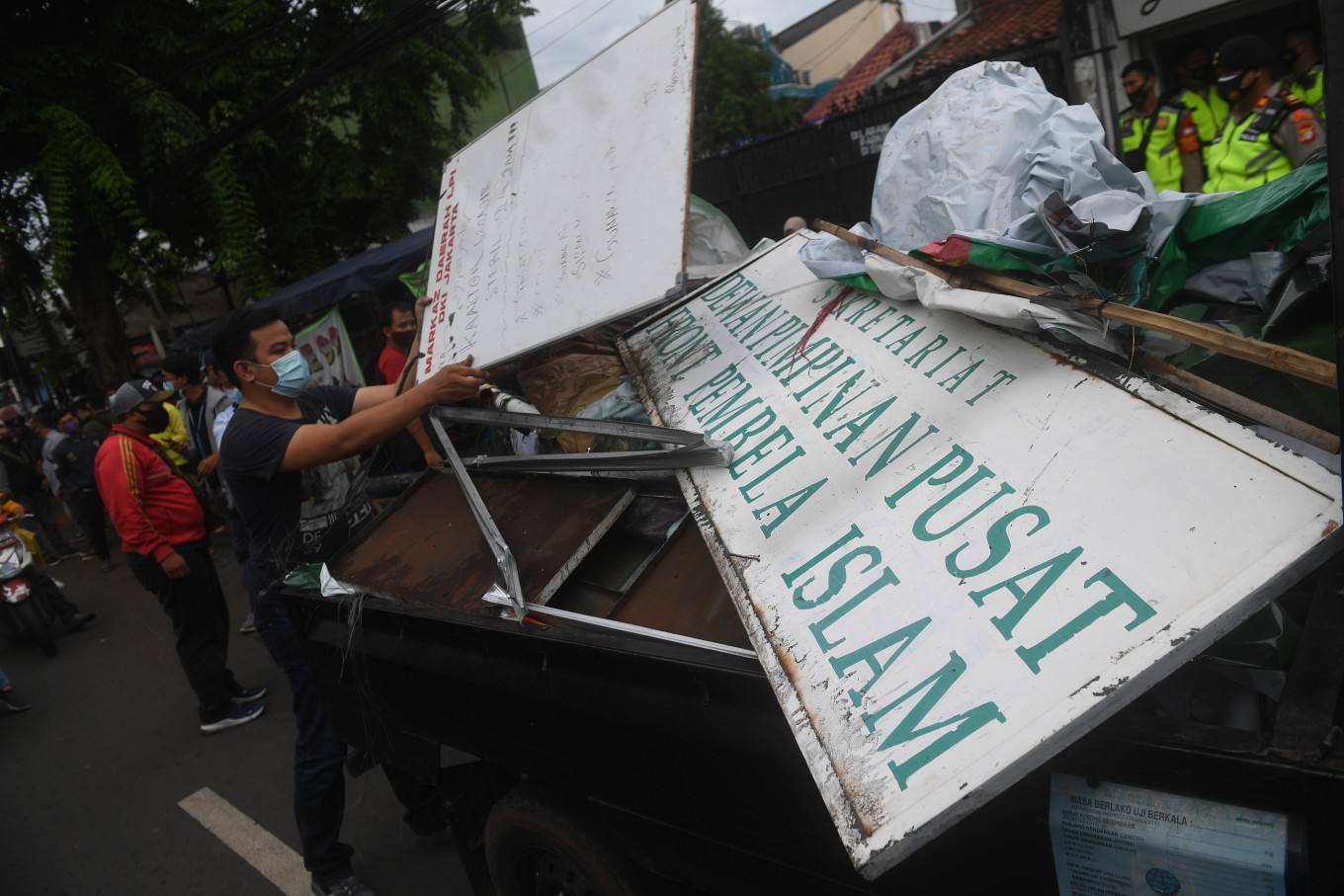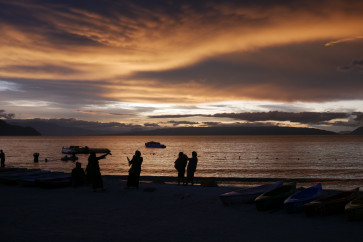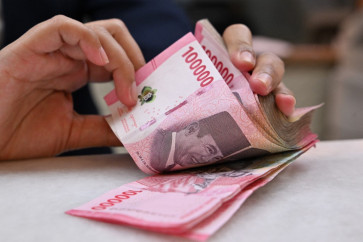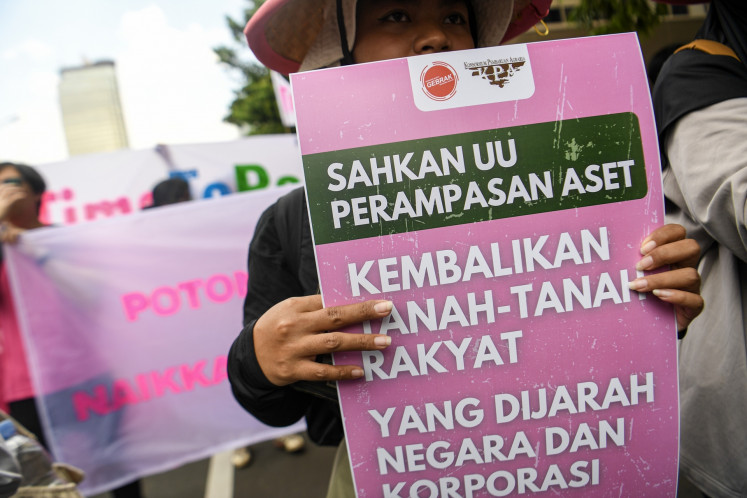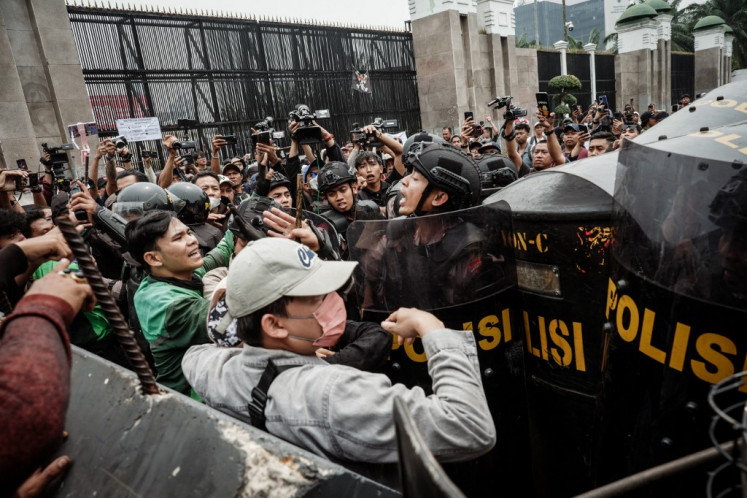Popular Reads
Top Results
Can't find what you're looking for?
View all search resultsPopular Reads
Top Results
Can't find what you're looking for?
View all search resultsThe power to ban
But the government’s decision to ban the hardline group without due process of law has marked yet another setback for democracy this country has claimed to champion.
Change text size
Gift Premium Articles
to Anyone
L
et’s be clear: The now-defunct Islam Defenders Front (FPI) was notorious for its acts of intolerance and use of violence and for sure was not a democracy hero. But the government’s decision to ban the hardline group without due process of law has marked yet another setback for democracy this country has claimed to champion.
Law No. 16/2017 on mass organizations, which replaces Law No. 17/2013, is the justification for the dissolution of the FPI and previously another hardline Islamic group Hizbut Tahrir Indonesia. Unlike the old legislation, the 2017 law allows the government to disband a mass organization without having to wait for a court verdict, but the action can be challenged in court.
The 2017 law survived a judicial review motion last year, with the Constitutional Court unanimously upholding the government’s authority to revoke the permit of a mass organization, saying the process involves the judiciary power, albeit afterward rather than in advance.
A joint decree signed by six high-level officials that justifies the FPI banning says the group had a statute that contradicts the state ideology of Pancasila and the 1945 Constitution, had failed to renew its registration with the Law and Human Rights Ministry, engaged in vigilantism and had dozens of members implicated in terrorism.
Those are serious violations already, but the government only recently took such harsh measures against the group. The statute was already in place when the group was founded more than 20 years ago and neither government officials nor law enforcers made a fuss of the violation, which in the past led to the extermination of the Indonesian Communist Party.
Everybody, including the government and the police, knew the FPI took the law into its own hands when it came to its war on “vice” by raiding night clubs and food stalls during Ramadan, dissolving book discussions, attacking minority religious groups and cracking down on LGBT groups – but rarely talking tough about corruption, dubbed an extraordinary crime in the country.
On many occasions the police took actions against, instead of protecting, the minority and vulnerable group members just to avoid clashes between them and the FPI supporters. The authorities were simply silent and for the FPI such inaction could be translated as support and encouragement.
The government’s belated move against the FPI raises questions, but whatever the motives behind the group’s banning, the policy has set a bad precedent. In a democracy, freedom of association is deemed a negative right, which means the state shall not reduce or intervene in exercise of the right, while at the same time a positive obligation, which prescribes that the state protect the right for all.
No doubt in the past few years the FPI, regardless of who was behind them, transformed into a challenge to the government. The most visible evidence is none other than the 212 Movement in 2016, which catapulted FPI leader Rizieq Shihab to political prominence until his arrest on several accounts last month.
In dissolving the FPI, the government simply replicated the group’s antidemocratic attitude and disrespect for the rule of law. Other organizations, either hardline or not, can be the next targets.

